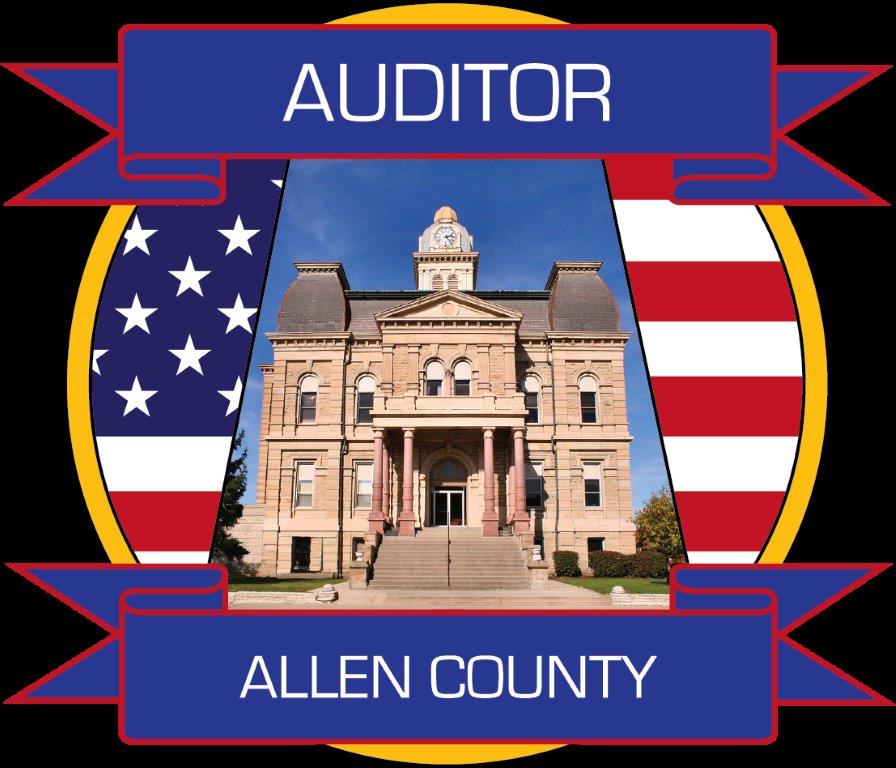Weights and Measures
Weights and Measurements Overview
The County Auditor is responsible for the enforcement of all Ohio laws relating to weights and measures. The Auditor is required to see that these laws are strictly enforced and shall assist in the prosecution of violations within her jurisdiction.
The Auditor appoints Deputy Inspectors to perform and carry out all required weights and measures duties. Each inspector is required to meet minimum training requirements set forth in Ohio Administrative Code Rule 901:6-9-01.
Weights and Measures inspectors inspect any weighing or measuring device that is used in commercial transactions. Some of the devices inspected and tested are fuel meters, retail devices, and price verification systems, such as U.P.C. scanners. Each device is inspected at least once a year. The inspectors work to protect consumers and merchants by ensuring that the weighing and measuring devices are correct and accurate.
Certification of Inspectors
All Weights and Measures inspectors are required to receive training and certification from the Ohio Department of Agriculture, Division of Weights and Measures. Inspectors must pass a series of 20 tests and 2 exams with 80% or above, as well as attend 18 hours of continuing education classes per year to maintain their certification. Spring School, Regional Training Seminars and one-on-one training are some of the courses that are state sponsored.
Error Rates
Acceptable error rates vary depending on the device. The county is responsive to calls concerning the possibilities of an error in a weighing or measuring device. A Weights and Measures inspector will typically inspect a site within 24 to 48 hours of receiving a complaint.
A device must fall within acceptable tolerance. If a device is found to be inaccurate, the inspector can reject, condemn or in extreme cases, confiscate the device. An approval and/or a security seal is not attached until the device is serviced by the owner and/or operator and passes all further inspection and testing. Records are maintained for all reported complaints.
Scales and Gasoline Pumps
Many items are sold by weight, i.e. ounces and pounds. Scales determine the cost of a product based on the weight and unit price of said product. Fuel is sold by volume in gallons or liters. A computer in the gasoline pump calculates what you owe based on the amount and unit price of the gasoline. The inspectors inspect and test commercial weighing and measuring devices to assure compliance with NIST Handbook 44 and the National Type Evaluation Program. After a device has been inspected and tested and found accurate, the Weights and Measures inspectors place an official approval and/or security seal on scales and pumps to affirm that the equipment was tested and found to be accurate. Also, security seals are applied to adjusting mechanisms to prevent tampering between inspections.
Price Verification
Price verification is conducted on Universal Product Code scanners. The U.P.C. is used in most retail stores to scan the price of an item. The price of an item is entered into a computer; when the item is scanned the price will appear on the register. The County Auditor ensures that the labeled shelf price or the advertised price matches the price displayed at the checkout. Random items are pulled from the shelves and are scanned in order to determine accuracy.
Request to Validate
If you are a business owner or a service company that needs to set up an inspection, please notify the Auditor’s Office. The Request to Validate form can be filled out online to request an inspection. The Weights and Measures inspector will then contact the requestor to confirm the inspection date. The inspector can be contacted at the Auditor’s Office directly as well.
Consumer Tips
Gas Pumps
- Be sure the correct pump is being used, whether the attendant is pumping the gas or you are pumping it yourself.
- Be sure the pump is set to zero before gasoline is pumped.
- Check the price by multiplying the number of gallons by the unit price. Be sure this shows as total price.
- Make sure you are charged the amount advertised.
- If using a credit card, check your receipt to be sure the amount billed is the amount on the pump.
Price Verifications (Scanners)
- Watch as the price of the item shows on the check out register.
- Ask the clerk to check the price if you think the scanned price is incorrect.
- If the scanned price does not agree with the posted price, ask the store manager to correct it.
- Save the cash register receipt in case you have questions or a problem later.
Retail Scales
- Watch the scale and the amount registered. The scale should be placed so you can see the weight, price and other information displayed.
- Make sure the scale shows a zero or minus sign before anything is weighed. Pay only for the product, not the packaging.
- If you have any questions about how a store weighs or measures products, ask the manager for information.
If you have concerns or questions about measurement issues, please contact the Auditor’s Office. If you have a complaint about a measuring device, try to supply as much information as possible about the transaction to make it easier for Weights and Measures to research the issue. For example, the item being purchased, its selling price, the price you were charged, the business manager or owner’s name.
File a consumer complaint.
